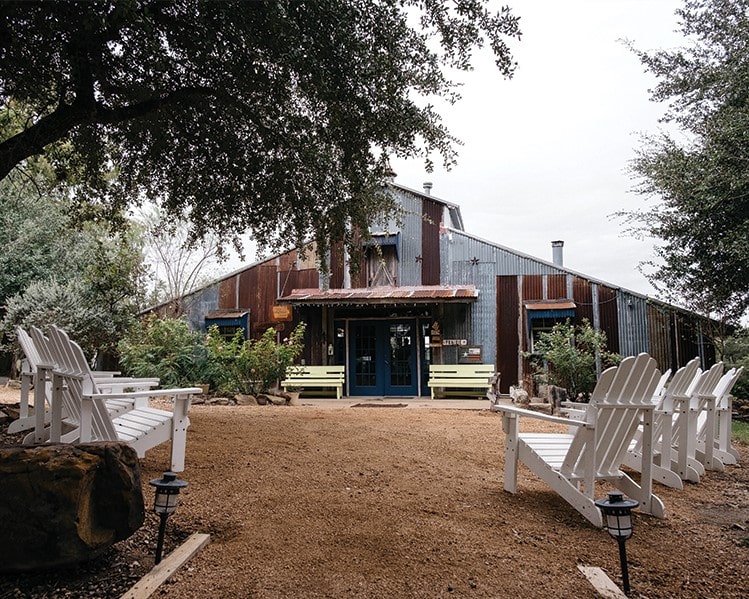In the vast state of Texas, drug abuse has reached alarming levels. The state’s drug overdose deaths increased by more than 75% during the past five years. The need for drug rehab near Houston, TX, is more crucial than ever. With a team of dedicated counselors and therapists, Prairie Recovery helps patients identify underlying factors of both drug and alcohol abuse, strengthen their motivation, and navigate their treatment options toward long-term sobriety.
What Exactly is Drug Abuse?
Drug abuse is the misuse of legal or illegal substances to achieve a high or other desired effect. However, drug abuse is different from drug addiction, as people can abuse drugs without being addicted. Common drugs that are frequently abused include:
- Heroin
- Cocaine
- Marijuana
- Prescription painkillers
- Ecstasy
- 3,4-Methylenedioxymethamphetamine (MDMA)
Regular drug abuse can quickly spiral into drug addiction, especially when consuming highly addictive substances. Such substances include heroin, cocaine, and prescription painkillers, as these are highly addictive.
The brain and body develop a dependence, requiring more of the drug to get the desired effect. Hence, addiction has taken hold.
Common Signs of Substance Addiction
Some people may question whether they have an addiction problem or not. For instance, they may live in denial and will attempt to cover up any signs of needing treatment.
Some common signs of drug and alcohol addiction can include:
- Constant thoughts of drinking or using drugs
- Trying and failing to stop using a substance
- Ongoing drug or alcohol use, even if it causes physical harm or discomfort
- Continuing to buy drugs or alcohol, even if it’s straining finances
With any of the above indicators, it is essential to seek addiction treatment as soon as possible. Our drug rehab near Houston, TX can help you recover from addiction safely and effectively.
Health Effects of Drug and Alcohol Addiction
Drug and alcohol addiction can have devastating effects on health, putting a strain on individuals, their loved ones, and the overall healthcare system.
The detrimental health consequences of addiction include:
- Overdose
- Kidney damage
- Liver damage
- HIV and hepatitis
- Cancer
In 2021, the drug overdose death rate in Texas was 15.8 deaths per 100,000 residents. Although seeking help for addiction may be intimidating, it is a lifesaving step that is worth taking.

Our Programs at Drug and Alcohol Rehab Near Houston, TX
Whether it’s low-intensity outpatient treatment or more intensive programs, the Prairie Recovery Center caters to its patients’ diverse needs.
It’s not just about treatment. From alcohol and drug detox to full recovery and everything in between, Praire Recovery offers a complete and compassionate solution to a life-threatening problem.
Here’s what you can expect from our alcohol and drug rehab near Houston, TX:
Partial Hospitalization Program (PHP)
Partial hospitalization allows patients to spend their days in treatment and go home at night. PHP is a good option for those who need more intensive therapy, are coming from residential rehab, or want to stay close to family during treatment.
Intensive Outpatient Treatment (IOP)
IOP is for those who need addiction treatment but don’t need to live in a rehab center. Therapy sessions take place several hours a week to help patients stay sober.
Outpatient Treatment (OT)
Outpatient programming is similar to IOP; however, it takes less time and involves less contact with counselors and therapists. OT is ideal for those who are stepping down from more intensive treatment but still need ongoing support.
Medication-Assisted Treatment (MAT)
While recovering from drug abuse, medication can help with the severity of withdrawal symptoms during detox.
Some of the drugs commonly used in MAT include:
- Benzodiazepines (also known as Benzos) are a common drug used to treat withdrawal symptoms. They calm the central nervous system while reducing withdrawal symptoms such as chills, sweats, and seizures.
- Methadone is a replacement for opioids that don’t make people feel high. It keeps the opioid levels in the body stable. As a long-term treatment, the dose is reduced over time, making withdrawal symptoms less intense.
- Naltrexone blocks the rush of feel-good endorphins when people use drugs or alcohol; hence, it’s for both drug and alcohol detox.

Dual Diagnosis Treatment
Many people suffer from people with mental health conditions and also struggle with addiction. Consequently, many people with mental health conditions use drugs or alcohol to numb the pain of their condition or cope with everyday life. This condition is called a dual diagnosis or co-occurring disorder. dual diagnosis
Dual diagnosis can be incredibly complex, as each condition can exacerbate the other, leading to a cycle that is difficult to break. Therefore, individuals in this situation often experience various emotions, from frustration and hopelessness to confusion and fear.
It’s critical to approach these individuals with empathy, recognize the complexities of their situation, and offer support and understanding.
Symptoms of a dual diagnosis include:
- Paranoia
- Erratic behavior
- Sudden mood swings
- Miss work, school, and other commitments
- Withdrawing from friends and family
- Suicidal thoughts or impulses
- Financial or legal issues.
Prairie Recovery’s drug rehab near Houston, TX, offers a specialized treatment program for dual diagnosis that targets the root cause of addiction and reduces the risk of relapse.

Our Services at Drug Rehab Near Houston, TX
Taking that first step into rehab can be scary and overwhelming. It’s tough to give up drugs and alcohol once addiction has set in. However, a quality treatment center will help every patient starting the first day and every day after that.
Prairie Recovery’s rehab near Houston, TX, offers holistic treatments and services that include:
Group Sessions
Group therapy is encouraged in rehab. Patients meet with other people in rehab and discuss specific subjects, such as the trials of recovery and family dynamics. The purpose is to promote healing and lifelong recovery.
Meals
Nutrition is vital to a holistic recovery program. People with SUD often do not eat properly. Therefore, patients will have three healthy meals daily tailored to their dietary needs during recovery.
Recreation and Peer Time
In good rehabs, there’s time for fun, relaxation, and networking with others. Recreational activities and time spent with peers also play an essential part. Patients will relax and connect with peers by playing games, swimming, watching movies, and other activities.
Individual Counseling
Counseling is a crucial part of recovery treatments. Many treatment centers offer this service to their clients.
Some of the most popular types of addiction therapies at our drug rehab include:
- Cognitive-behavioral therapy (CBT) is the most common type in treatment centers. It is highly goal-oriented and focuses on positivity and healthier thoughts.
- Therapy for families helps heal disconnected family relationships.
- Dialectical behavioral therapy (DBT) helps those in recovery overcome self-destructive behavior with stress-coping techniques.


